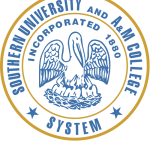Securing a scholarship in the United States can be a life-changing opportunity for students worldwide. Scholarships reduce the financial burden of education and enhance your career prospects. With countless scholarships available, having a clear strategy can significantly improve your chances of success. Here are the detailed and comprehensive tips to win U.S. scholarships to guide you through this crucial process.
Understand the Different Types of Scholarships
U.S. scholarships come in various forms, each catering to specific needs or qualifications. It’s essential to identify the type that aligns with your profile:
1. Merit-Based Scholarships
These scholarships reward academic excellence, exceptional talent in arts or sports, or leadership skills. Focus on maintaining a strong GPA and showcasing your abilities.
2. Need-Based Scholarships
Designed for students who demonstrate financial need, these scholarships often require proof of income and financial documentation—research colleges with generous financial aid policies.
3. Program-Specific Scholarships
Some scholarships are tied to specific fields like engineering, business, or medicine. Tailor your application to highlight relevant achievements in the targeted field.
4. Athletic Scholarships
If you excel in sports, consider athletic scholarships universities offer through their NCAA, NAIA, or NJCAA programs.
5. Diversity and Inclusion Scholarships
These scholarships aim to promote inclusion by supporting underrepresented communities. Examples include scholarships for international students, women in STEM, or first-generation college students.

Start Early and Plan Strategically
Scholarship applications are time-sensitive, and starting early gives you a competitive edge. Follow these steps to plan strategically:
1. Create a Scholarship Calendar
Please list all the scholarships you’re eligible for, their deadlines, and requirements. Use digital tools or a planner to keep track.
2. Research Thoroughly
Use scholarship databases like Fastweb, Scholarships.com, and College Board to find opportunities tailored to your profile.
3. Understand Eligibility Criteria
Read the fine print for each scholarship. Apply only if you meet the eligibility requirements to avoid wasting time and effort.
Read Now: Best College Scholarships for Americans
Craft a Winning Application
A well-prepared application is your ticket to success. Here’s how to make yours stand out:
1. Write a Compelling Personal Statement
Your statement should highlight your achievements, aspirations, and reasons for applying. Be authentic and specific—include anecdotes that demonstrate your character and goals.
2. Collect Strong Letters of Recommendation
Choose recommenders like teachers, mentors, or employers who know you well. Please give them ample time and information to write detailed, personalized letters.
3. Tailor Each Application
Avoid generic applications. Tailor your essays, statements, and other documents to reflect the values and mission of the scholarship provider.
4. Showcase Leadership and Community Involvement
Extracurricular activities, leadership roles, and volunteer work indicate a well-rounded candidate.
Prepare for Interviews
Some scholarships require an interview as part of the selection process. Preparation is key:
1. Practice Common Questions
Prepare for questions like “Why do you deserve this scholarship?” and “What are your future goals?”
2. Research the Scholarship Provider
Understand the organization’s mission, values, and recent initiatives. Align your responses to their objectives.
3. Dress Professionally and Be Confident
Your appearance and demeanor can leave a lasting impression. Dress appropriately and exude confidence.
Leverage Your Online Presence
In today’s digital age, your online profile can influence scholarship decisions. Optimize your presence:
1. Clean Up Social Media
Remove any content that might be deemed unprofessional or controversial.
2. Build a LinkedIn Profile
Create a professional LinkedIn profile showcasing your academic and extracurricular achievements.
3. Use Email Etiquette
Ensure your email address and communication reflect professionalism.

Maximize Financial Aid Opportunities
Scholarships are just one form of financial aid. Combine them with other resources to reduce education costs:
1. Fill Out the FAFSA
The Free Application for Federal Student Aid (FAFSA) is essential for need-based aid. Submit it early to maximize your eligibility.
2. Apply for Grants
Grants, unlike loans, don’t require repayment. Research federal, state, and institutional grants.
3. Look for Work-Study Opportunities
Many U.S. colleges offer work-study programs to help students earn money while studying.
Read Now: How to Find Scholarships in the USA
Avoid Common Mistakes
Many applicants miss out on scholarships due to avoidable errors. Stay vigilant:
1. Missing Deadlines
Create reminders to ensure you meet every deadline.
2. Submitting Incomplete Applications
Double-check that all documents are included and correctly filled out.
3. Ignoring Small Scholarships
Don’t overlook smaller awards—they can add up to significant savings.
Additional Resources for Scholarship Success
Take advantage of tools and organizations dedicated to helping students secure scholarships:
- Scholarship Search Engines: Platforms like Fastweb and Cappex offer comprehensive databases.
- College Financial Aid Offices: Most universities have financial aid counselors to guide you.
- Nonprofit Organizations: Groups like the Fulbright Program and EducationUSA provide invaluable support for international students.
Conclusion
Winning a U.S. scholarship requires dedication, meticulous preparation, and persistence. You can significantly enhance your chances by understanding the types of scholarships available, planning early, crafting standout applications, and leveraging additional financial aid options. Remember, every effort counts toward achieving your dream of studying in the U.S.







